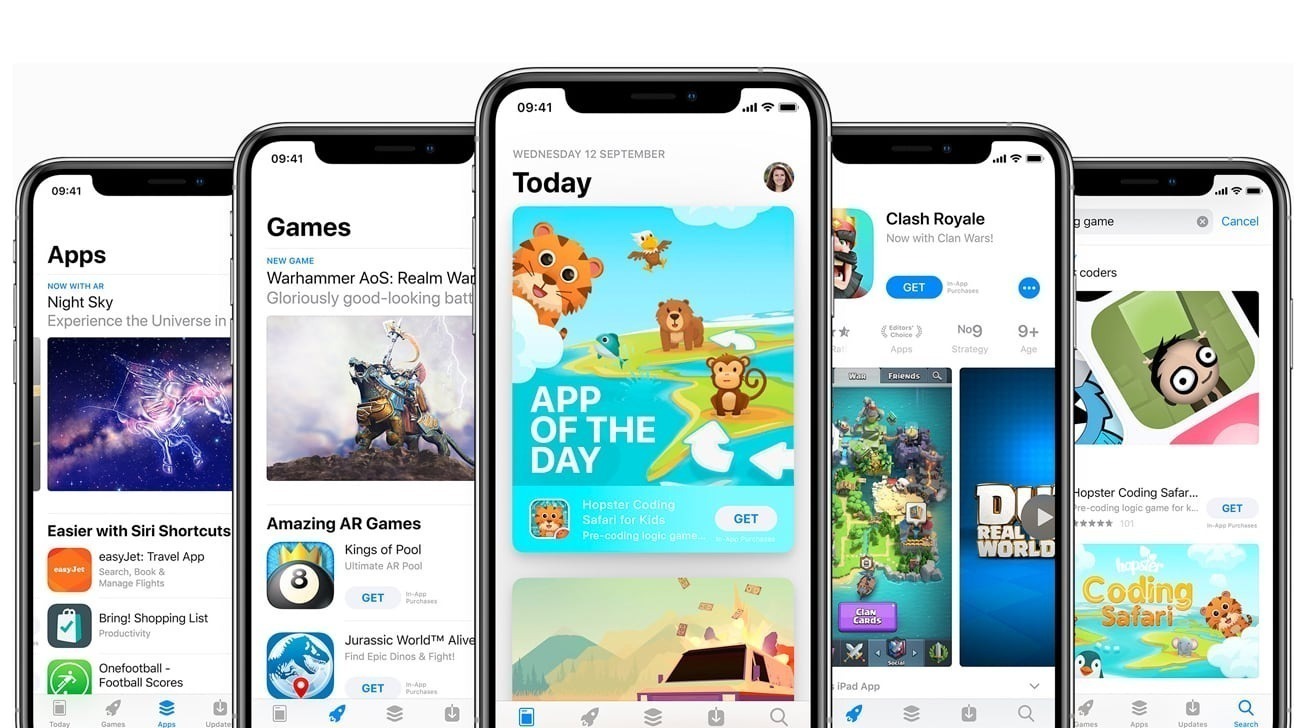Australia has become the latest country to look into Apple's App Store and Google's Play Store policies, after the country's competition regulatory agency revealed it is examining the digital storefronts for antitrust behavior.
The Australian Competition and Consumer Commission has advised it is looking into the "use and sharing of data by apps, the extent of competition between Google and Apple's app stores, and whether more pricing transparency is needed in Australia's mobile apps market" in a statement issued on Tuesday.
The work is being conducted as part of a five-year inquiry, with reports about digital platform services set to be published every six months. An issues paper released by the commission asks for views and feedback from app developers and suppliers in their dealings with the app stores, while consumers have been invited to share their experiences via a survey.
The ACCC wants views on Apple and Google's potential incentive to link or bundle their own goods and services through their app marketplaces and how they affect consumers and businesses. The ability for third-party app developers to compete against apps made by the firms controlling the stores is also being looked at, as are terms and conditions imposed on developers, the effects of fee structures, how apps are allowed or denied access to the app stores, rankings, and the potential collection of consumer data.
We want to know more about the market for mobile apps in Australia, including how transparent and effective the market is, for consumers as well as those operating in the market," said ACCC deputy chair Delia Rickard. "We will also focus on the extent of competition between the major online app stores, and how they compete for app sales with other app providers."
Submissions for the consumer and developer surveys close on October 2, with the final report concerning the opinions expected by March 2021.
Australia has become the latest country to take interest in Apple's App Store for antitrust reasons. Investigations and expressions of interest have been made or commenced by many countries, including Germany, Russia, the United States, and others.
 Malcolm Owen
Malcolm Owen







-m.jpg)






 Christine McKee
Christine McKee
 Marko Zivkovic
Marko Zivkovic
 Mike Wuerthele
Mike Wuerthele

 Amber Neely
Amber Neely
 Sponsored Content
Sponsored Content
 Wesley Hilliard
Wesley Hilliard










8 Comments
This particular investigation doesn't seem to be as brutal as the ones in some other countries, but I'm going to say what I've been saying for weeks, with a little twist this time. Until these investigation around the world are generally complete, Apple should not install the App Store on new iPhones, starting with the iPhone 12. You can still use the App Store on iPhones manufactured before today, but the insinuation would be that all future iPhones may not ever get it. The question we would have is whether consumers will buy the iPhone 12 or continue buying the iPhone 11. If most people buy the 12, that would tell the world not to try to micromanage anyone's App Stores. The world doesn't try to micromanage what's sold inside anyone's retail store, so why anyone's App Store? This would be like Walmart deciding to sell only items that are branded by WalMart itself. Nobody would do anything about that. Nothing at all. And if Walmart could get away with that, so much the better for them.
PS. As an encouragement to get people to buy the iPhone 12, Apple could include all of its own paid software products for free on that device only. Along with free subscriptions to its Music, TV and News services for as long as there is no App Store available for it. I would jump at that.
It's worth noting that the ACCC's involvement does not mean there is a foregone conclusion of finding anti-trust behaviour as it tends to with the regulatory agencies of certain other countries where these agencies are merely thinly veiled fronts to protectionist policies.
Rather, the ACCC has found many times in Apple's favour, the most notable and recent example being the denial of Australia's own banks from colluding against Apple Pay.
All these countries just piling on in hopes Apple losses in one country and the rest can say us too and extract their fines to pay for their pet projects.
not sure why Apple should curtail or inhibit their devices when the competing Samsung mobiles do not, not convinced that doing so, however people bought, would tell anyone anything really. Some people buy for the new camera, some just because it’s new etc. Many don’t care about apps at all.